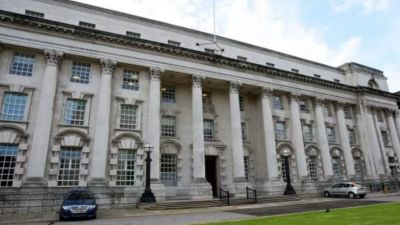Woman's legal challenge to being denied victim of human trafficking status in Northern Ireland

An African woman who claims her kidney was forcibly harvested before she fled to Northern Ireland has launched a legal challenge to being denied status as a victim of human trafficking. The Eritrean national says the organ was surgically removed while drugged and being kept at a house in Sudan. She is seeking to judicially review a determination reached by the Home Office following her escape and onward journey to Belfast earlier this year.
Lawyers for the woman, who is in her 20s but cannot be identified, contend that the decision unlawfully violated her right to be protected from trafficking and slavery. A High Court judge today listed the case for hearing next month. Papers lodged as part of the challenge state that the woman left Eritrea after her father was killed because of his opposition to its government. She moved to Ethiopia and worked as a maid for a family until a member of that household allegedly beat and tried to rape her. Assisted by an agent, she escaped and was brought to Sudan, where she was kept for seven months. During her stay in a packed, dirty house run by traffickers one of her kidneys was forcibly harvested, it is claimed. In her affidavit the woman recalled how she discovered what happened to her after medicine had been mixed into her food. “The next thing I remember is waking up (on a mattress on the floor) and feeling discomfort in my abdomen,” she stated. “After about one week I was able to remove the plaster. I saw the wound and the stitches. “I talked to some other prisoners within the house, and they told me there were others who had suffered the same thing.” She claimed she was forced back to work once she was able to move again, but eventually allowed to leave when the agents feared being detected by the authorities. The woman escaped to Turkey under a fake passport, according to her account, before travelling to Belfast via Greece and Dublin in order to seek asylum. At a screening interview she was referred on as a potential victim of human trafficking or modern slavery. But earlier this month the Home Office decided there were not reasonable grounds to conclude that she should be granted that status. Despite accepting her credibility and that she raised concerns about exploitation at the earliest stage, it was concluded she had not provided enough detail to support her claim. The woman’s legal team have mounted a number of grounds of challenge to the decision, including allegations of irrationality and breach of Article 4 of the European Convention of Human Rights, which prohibits slavery and forced labour. Speaking outside court, her solicitor, Karl McKenna of Brentnall law firm, said: This case is a depressing and shocking example of the most vulnerable people in our society being badly let down by the current system. “We hope that the Home Office will now properly review this decision as a matter of urgency and that our client can receive the important support that victims require.”
Want a quick and expert briefing on the biggest news stories? Listen to our latest podcasts to find out What You Need To Know.